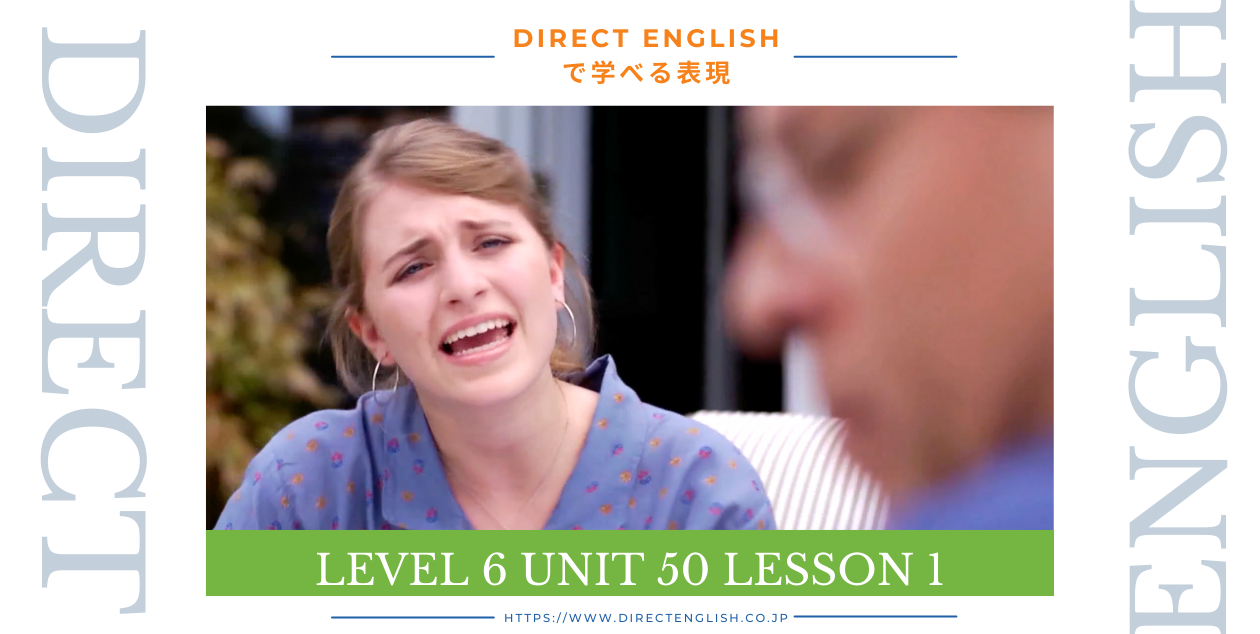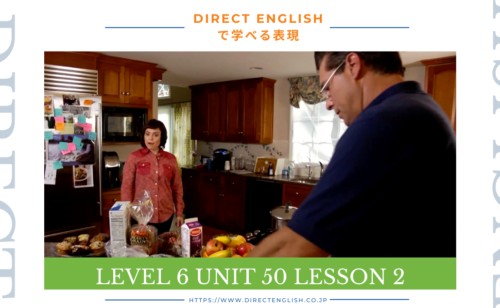
今回のレッスンでは、Richardと娘のBethが冬の旅行について話し合う様子を通じて、日常英会話や親子関係に関連する表現を学びます。Bethは友達と一緒に冬のクロスカントリートリップを計画しており、Richardは彼女の運転経験が不足していることを理由に反対しています。この会話では、親子間のコミュニケーションや安全への配慮についての重要性が強調されます。
1. レッスン1の概要と登場人物
Bethが父親のRichardに冬のクロスカントリートリップを計画していることを話し、Richardは彼女の運転経験が不足していることを理由に反対します。

Situation:
Beth is angry with her father.
Question:
Why is she angry?
2. 会話で使われた重要なフレーズと実践的な例文
- 1. You just turned sixteen.
-
意味:あなたはちょうど16歳になりました。
解説:「Just turned」は「ちょうど~になった」という意味で、年齢が変わった直後の状態を強調します。
例文:She just turned twenty last week.
(彼女は先週20歳になりました。) - 2. You don’t have enough experience.
-
意味:あなたには十分な経験がありません。
解説:「Enough」は必要な量や程度を示し、「experience」は特定の状況や活動に関連する知識やスキルを指します。
例文:You don’t have enough experience to handle this project alone.
(あなたにはこのプロジェクトを一人で扱うには十分な経験がありません。) - 3. Can’t you find some way to accommodate me?
-
意味:私に何とかして対応してくれないのか?
解説:「Can’t you」は相手に対する要求やお願いをする際に使います。「accommodate」は柔軟に対応することを示します。
例文:Can’t you find some way to help me with this project?
(私に何とかしてこのプロジェクトを手伝ってくれないのか?) - 4. How will I ever get the experience if you never let me do anything?
-
意味:もしあなたが私に何もさせてくれないなら、どのようにして経験を得ることができるのか?
解説:「How will I ever」は未来の可能性を尋ねるフレーズで、「let me do」は「~させる」という許可の意味を持ちます。
例文:How will I ever learn to cook if you never let me try?
(もしあなたが私に料理を試させてくれないなら、どのようにして料理を学ぶことができるのか?) - 5. We’d be sick with worry, no matter what you tell us.
-
意味:あなたが何を言っても、私たちは心配でたまらないだろう。
解説:「We’d be」は仮定的な状況を示し、「no matter what」は無条件に適用される状況を示します。
例文:We’d be thrilled with joy, no matter what the outcome.
(あなたが何を言っても、私たちは喜びでいっぱいだろう。) - 6. You may not take this trip because you are all young, relatively inexperienced drivers.
-
意味:あなたたちは全員若くて比較的経験の浅い運転手なので、この旅行には行けません。
解説:「May not」は禁止を示し、「relatively inexperienced」は「比較的経験が浅い」という意味です。
例文:You may not use this equipment because it’s very delicate.
(この機器は非常に繊細なので使用してはなりません。)
3. 「Parent-Child Communication and Safety Concerns」というテーマでエッセイを書く。
ライティングのコツと準備方法
- 主題を決める:例えば「親子間のコミュニケーション」
- アウトラインを作成:主要なポイントを箇条書きにする
- 具体的な詳細を考える:経験談など具体的な事例
- 学んだ表現を組み込む:レッスンで学んだフレーズを使用する
- 感情や雰囲気を描写する:読者が情景を想像できるようにする
ライティング見本
Title: Parent-Child Communication and Safety Concerns
Parent-child communication is crucial, especially when it comes to making decisions about safety. Recently, Beth expressed her desire to embark on a cross-country winter trip with her friends, but her father Richard was hesitant due to her lack of driving experience.
Richard’s concerns are understandable, as he wants to ensure Beth’s safety. However, Beth feels frustrated, arguing that she will never gain experience if she is not allowed to take on new challenges. This situation highlights the importance of balancing parental concerns with the need to give children independence and opportunities to learn.
In conclusion, effective communication between parents and children is essential for resolving conflicts and addressing safety concerns. By listening to each other’s perspectives and finding compromises, families can build trust and foster a supportive environment.
まとめ:
このレッスンでは、RichardとBethの会話から親子関係や安全への配慮について学びました。「You just turned sixteen.」や「We’d be sick with worry, no matter what you tell us.」など、年齢や経験を説明する表現や安全への懸念を伝えるフレーズが役立ちます。この知識を活用して、親子間のコミュニケーションを深めましょう!

